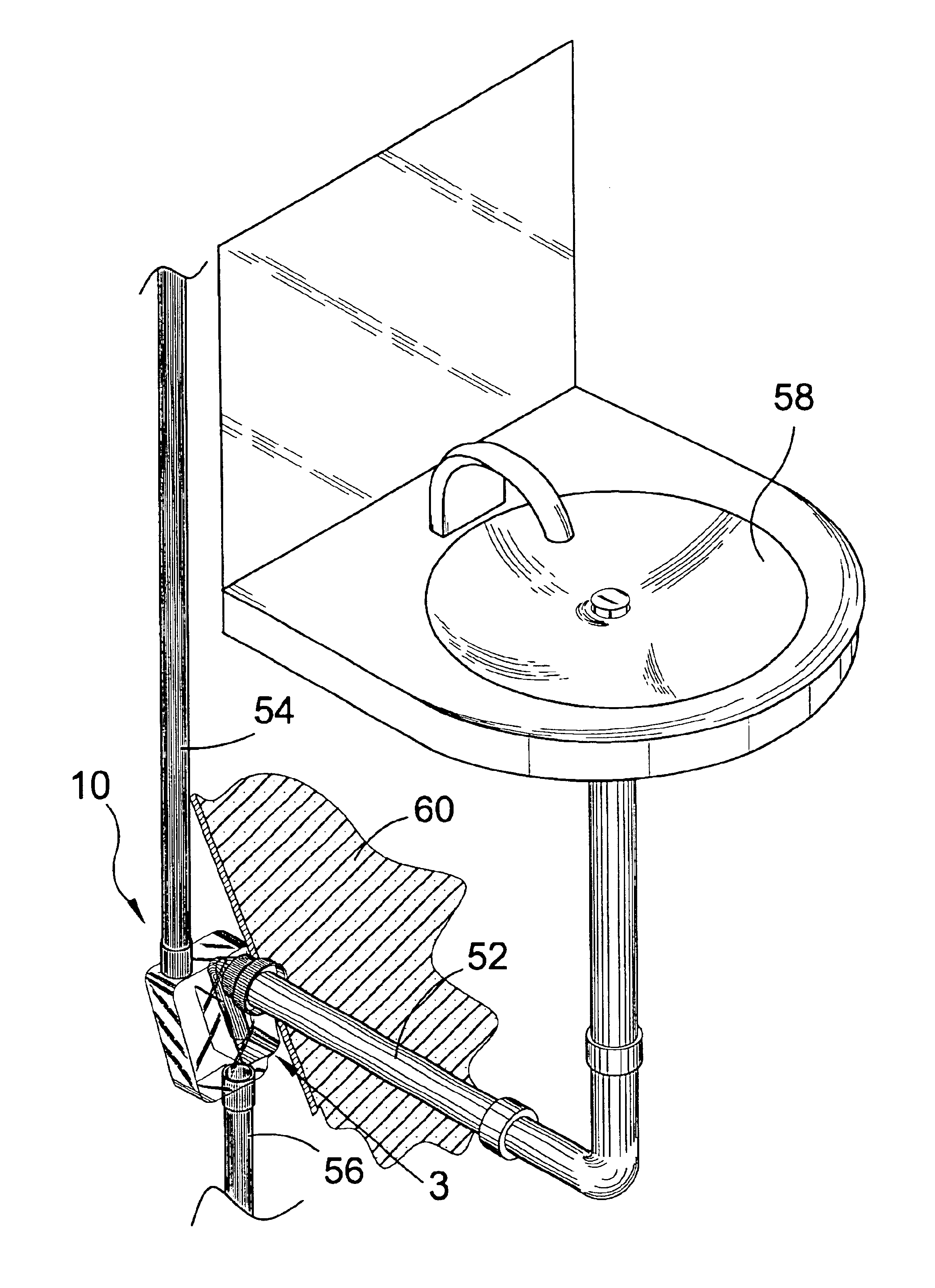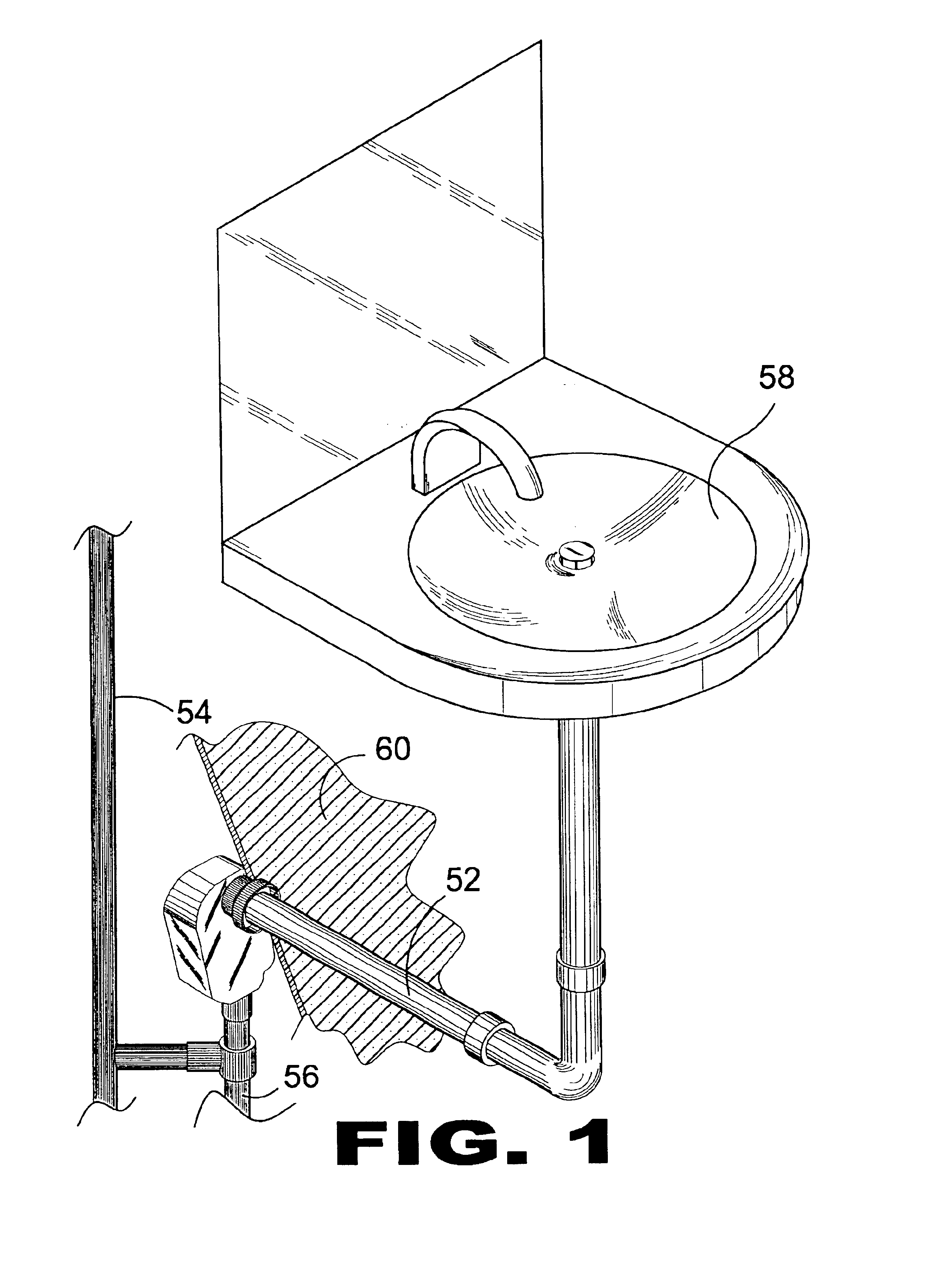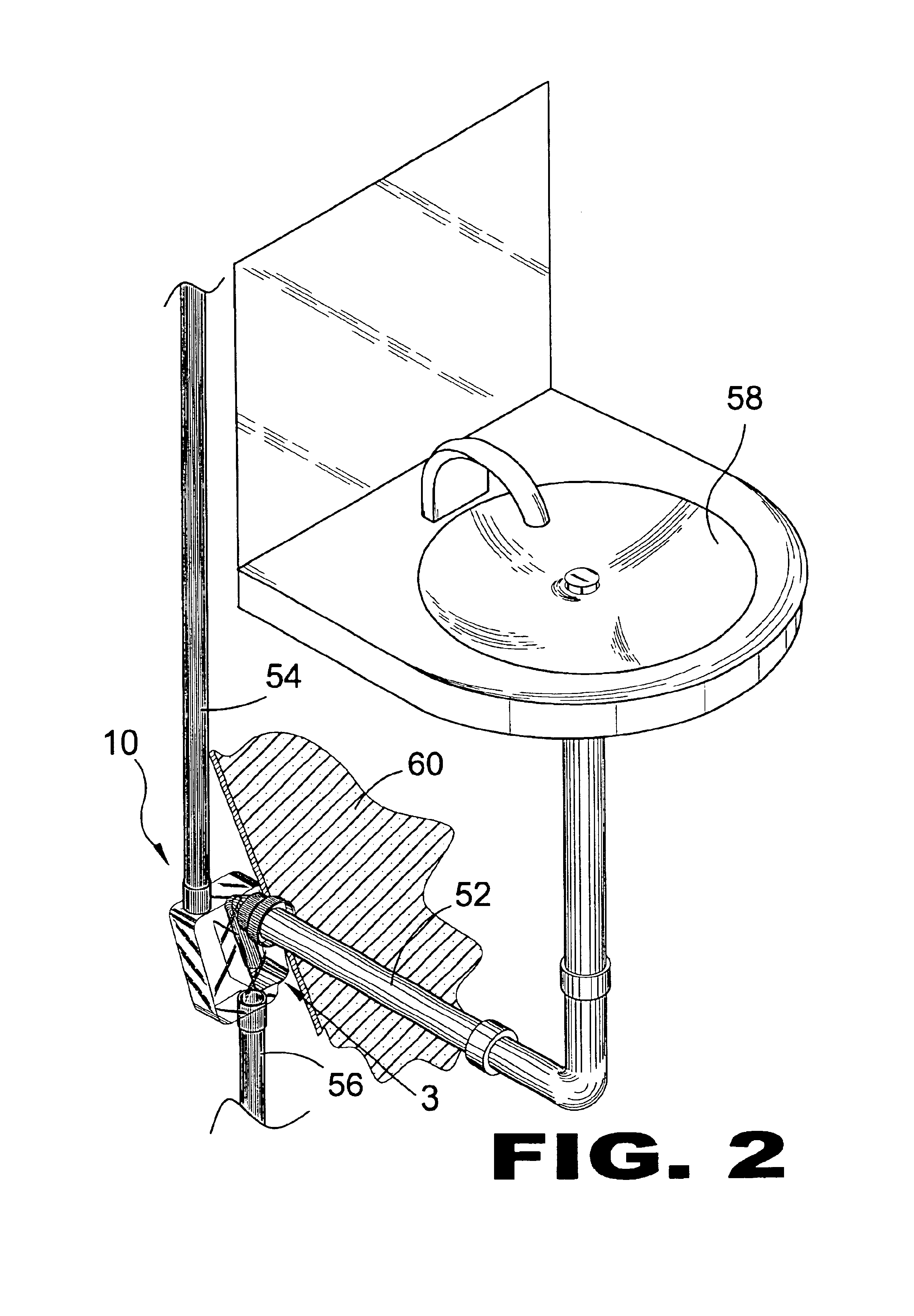In-the-wall plumbing trap with integral waste and vent line
- Summary
- Abstract
- Description
- Claims
- Application Information
AI Technical Summary
Benefits of technology
Problems solved by technology
Method used
Image
Examples
Embodiment Construction
The following discussion describes in detail one embodiment of the invention. This discussion should not be construed, however, as limiting the invention to those particular embodiments, practitioners skilled in the art will recognize numerous other embodiments as well. For definition of the complete scope of the invention, the reader is directed to appended claims.
FIG. 1 is an illustrative view of prior art 62. Shown is a prior art in-the-wall 60 plumbing trap 62 mounted below a wash sink 58 having a drainpipe 52 connected to an inlet port of the trap 62 and connected to a waste pipe 56, with the waste pipe 56 having a common vent pipe 54 connection.
FIG. 2 is an illustrative view of the present invention 10. Shown is the present invention, an in-the-wall plumbing trap 10 mounted below a wash sink 58 having a drain pipe 52 connected to an inlet port of the trap 10 with the top most end of the housing having a ventilation pipe 54 connected thereto.
FIG. 3 is a perspective view of the ...
PUM
 Login to View More
Login to View More Abstract
Description
Claims
Application Information
 Login to View More
Login to View More - R&D
- Intellectual Property
- Life Sciences
- Materials
- Tech Scout
- Unparalleled Data Quality
- Higher Quality Content
- 60% Fewer Hallucinations
Browse by: Latest US Patents, China's latest patents, Technical Efficacy Thesaurus, Application Domain, Technology Topic, Popular Technical Reports.
© 2025 PatSnap. All rights reserved.Legal|Privacy policy|Modern Slavery Act Transparency Statement|Sitemap|About US| Contact US: help@patsnap.com



